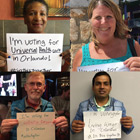
Rebuilding the Working Class
Our organizers talked to 300,000 voters, across racial and party lines, since the 2016 election. Here’s what we learned about rebuilding working-class power at the polls.


Our organizers talked to 300,000 voters, across racial and party lines, since the 2016 election. Here’s what we learned about rebuilding working-class power at the polls.
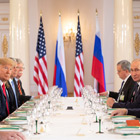
Putin and Trump are cast in the same reactionary, nationalist mold, and their alliance ought to concern anyone who cares about democracy.
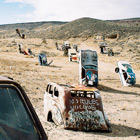
Born on the radical left and then seized by the right, has the concept of “capitalism” outlived its usefulness?
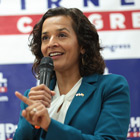
Democratic Party leaders have slanted primaries toward bland centrists, in the hope of pleasing swing voters and big donors. This strategy gets just about everything wrong—and the data shows it.
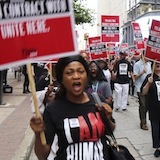
Organizers representing teachers, housekeepers, graduate students, and airline workers discuss union power in the wake of the Janus decision.
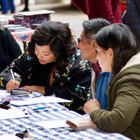
The Republican right has developed a playbook for suppressing the votes of the young, the poor, and people of color. Here are some of the most common tactics, and how to fight back.
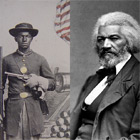
The ratification of the Fourteenth Amendment marked a turning point in U.S. history. Yet 150 years later, its promises remain unfulfilled.

A dedicated team of volunteers persuaded thousands of new voters to support Alexandria Ocasio-Cortez—and transform the Democratic Party in the process.

As controlling migration rapidly becomes the EU’s top priority, it’s ready to pay African governments to prevent refugees from reaching Europe—even if that means using paramilitaries to stop them.
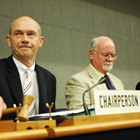
Since its inception, neoliberalism has sought not to demolish the state, but to create an international order strong enough to override democracy in the service of private property.

Andrés Manuel López Obrador’s landslide victory in Mexico’s presidential election reflects widespread dissatisfaction with the status quo—and a broad-based mandate to transform the country.
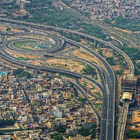
To be human is to shape the world, to create the infrastructure of our common lives. What do we do when that infrastructure becomes a trap?
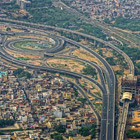
Today’s crises call on humanity to act collectively, but this possibility seems more and more remote. How do we break the cycle? A dialogue.

The Trump administration may have put a hold on separating families. But it is pushing through a range of other measures to keep migrants out—not least women fleeing violence and persecution.
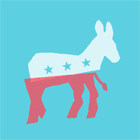
Nearly all Democrats agree about one thing: they are opposed to Donald Trump. But how to take power and what policies to enact if they succeed?
Introducing the special section of our Summer issue.